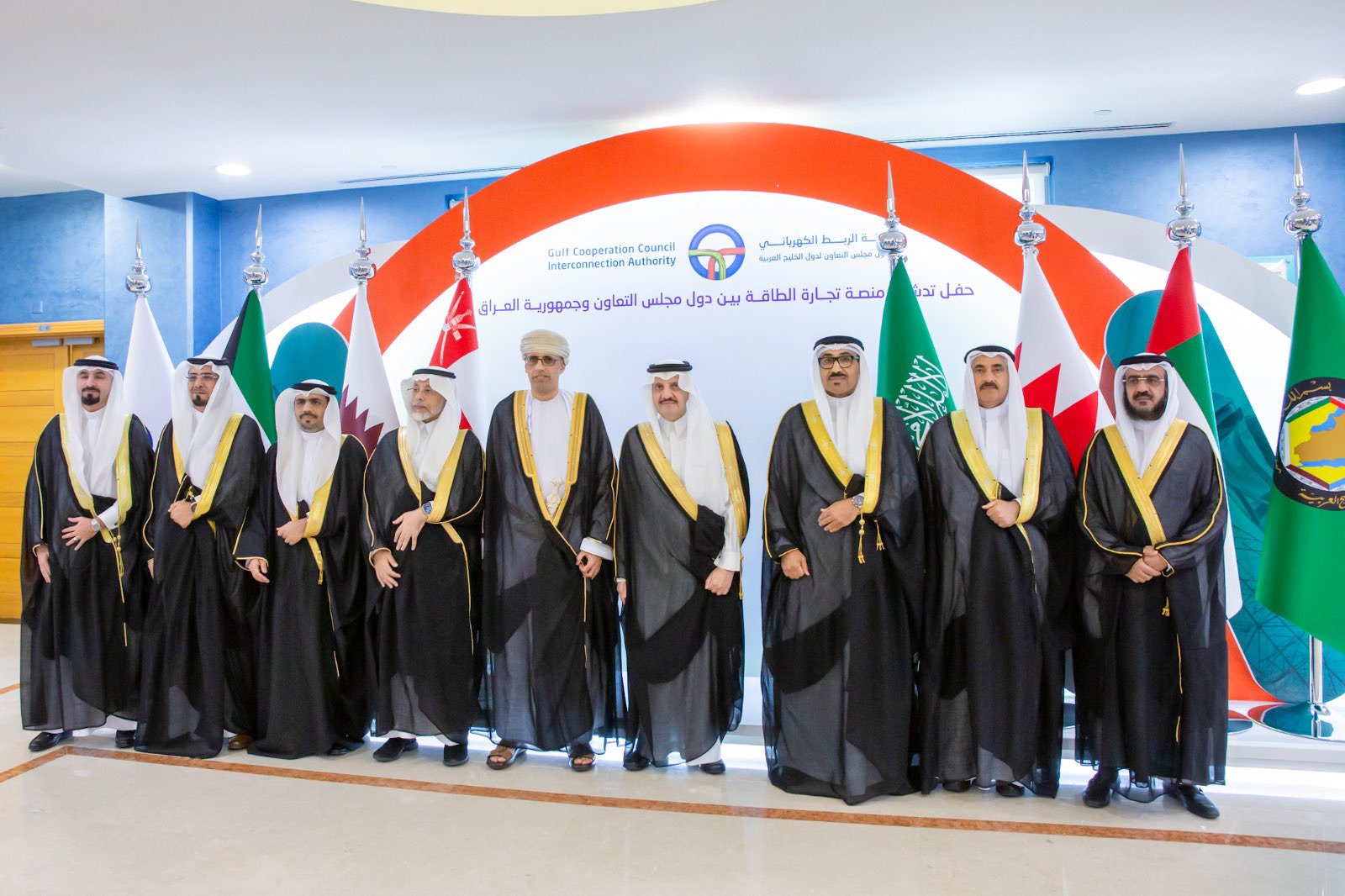GCC Interconnection Authority launches energy trading platform for GCC-Iraq transmission grid

GCCIA launches energy exchange platform for GCC-Iraq transmission grid: A platform that will manage the trade and exchange of energy transmitted via the GCC-Iraq electricity interconnection was inaugurated last week, according to a statement by the GCC Interconnection Authority (GCCIA) released last week. The Gulf Electricity Interconnection Project is expected to launch next year, while other expansion lines will be completed at a later date, GCCIA CEO Ahmed Al-Ebrahim told Alarabiya (watchtime, 0:38) on the sidelines of the inauguration. The GCCIA predicts that transmission through the line will reach 2 TW in summer and 0.5 TW in the winter and revenues from the electricity trades are expected to reach USD 200-300 mn annually.
About the project: The USD 220 mn Gulf Electricity Interconnection Project stretches over 1km from Kuwait to Oman and plans to connect all six gulf countries, according to Al-Ebrahim. Currently, it consists of nine electricity transmission stations, the most important of which is Al-Fadhili Station in Saudi Arabia — the biggest connecting station in the Middle East — Al-Ebrahim explained on the sidelines of the inauguration (watchtime, 0:38). Since its inception, the project has saved approximately USD 3 bn compared to the initial investment and operational costs, the GCCIA said.
Lots of expansion works underway: The Al-Wafra station in Kuwait is a quarter way through the construction stage and is scheduled to be operational in December of next year, according to the GCCIA. Al-Wafra will be the main linking point to Iraq, and will expand the interconnection capacity with Kuwait from 1.2 GW to 3 GW, he added (watchtime, 0:59). The expansion of the connection to the UAE is also underway, with two 400-kilovolt lines expected to be completed by the end of 2025 that will see the transmission capacity increase from 1.2 GW to 3 GW, and a direct connection with Oman will increase the transmission capacity from 400 MW to 1.2 GW (watchtime, 1:20). Connections with Jordan and Turkey were also announced earlier this year.
Stronger interconnections = faster green transition: Given that the interconnection project will be used to export electricity to Iraq, including electricity generated by renewable energy, it will reduce the dependence on fossil fuels and facilitate clean power exports to other countries in the region and beyond, thus providing higher interconnectivity and integrability of renewables into the GCC grids, according to a chapter written by Al-Ebrahim in a book titled Renewable Energy Integration. Renewables trading is likely to increase as countries move closer to reaching their emission targets.
IN OTHER IRAQ NEWS- Iraq courts the private sector to help with renewables targets: Iraq will invite more companies to set up solar power projects in efforts to expand its renewables capacity to a third of its energy mix by 2030, the Iraqi News Agency reported on Wednesday, citing comments by Iraq's Prime Minister Mohammed Al-Sudani. Al-Sudani’s comments came on the sidelines of the 6th Russian Energy Week International Forum in Moscow. The country is also planning its first waste to energy project, the Iraqi News Agency reported last week.